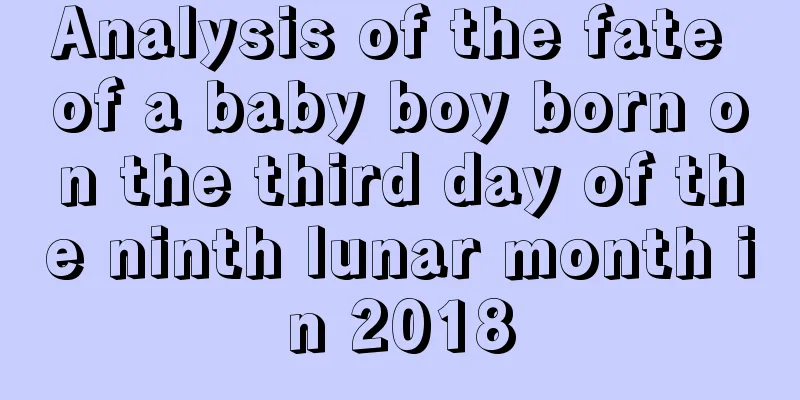Is Grain in Ear a spring solar term? What legends are there about it?

Introduction: Grain in Ear is one of the 24 solar terms. So is Grain in Ear a spring solar term? What legends are there about Grain in Ear? The "Book of Songs" records that "cicadas sing in May". Cicadas are the chirping cicadas. In the fifth month of the lunar calendar, summer cicadas sing, so it is called "singing cicadas". If you want to know about the auspiciousness and inauspiciousness of the fifth month of the lunar calendar in 2019, come and have a look at Mr. Shui Mo.Is Grain in Ear a spring solar term?Grain in Ear is not a spring solar term, but a summer solar term. It is the third solar term in summer!Grain in Ear is the ninth solar term in the 24 solar terms of the lunar calendar, when the sun reaches 75 degrees of the ecliptic longitude. The "mang" in Mangzhong refers to the harvest of awned plants such as wheat, while the "zhong" in Mangzhong refers to the season for sowing millet crops. The homophonic meaning of the word “Mangzhong” indicates that all crops are “busy planting”. Therefore, "Mangzhong" is also called "busy planting", and farmers also call it "busy planting". The arrival of Grain in Ear indicates that farmers have begun their busy life in the fields. Zuo Heshui's poem "Grain in Ear" describes the weather and busy farming situation as "the scorching sun takes off the clothes, the plum rain swells the willow pond. The crops in the surrounding areas of Nanling are growing strong, and the wheat harvest is busy on both sides of the Yangtze River." There are six spring solar terms among the 24 solar terms, namely: Beginning of Spring, Rain Water, Waking of Insects, Spring Equinox, Qingming Festival, and Grain Rain. Studies have shown that Grain in Ear is suitable for regulating emotions. One can go to bed late and get up early, avoid direct sunlight, and take precautions against heatstroke in order to conform to the fullness of Yang energy, facilitate the circulation of Qi and blood, and boost spirits. In summer, the days are long and the nights are short. A short nap at noon can help you recover from fatigue and is good for your health. However, after the Grain in Ear season, people are required to take baths and change clothes frequently to relieve the "yang heat". Keeping a peaceful, calm and relaxed state of mind can also achieve the effect of "calmness brings coolness". In terms of clothing, after entering the Grain in Ear season, although the weather has become hot, the temperature in some areas is sometimes still very unstable because my country is often affected by cold air from the north. Therefore, it is better not to store away the warm clothes in spring too early during the Grain in Ear season, in case of emergency. What legends are there about Grain in Ear?During the Grain in Ear season, crops such as rice and cotton grow vigorously and require a lot of water, so the "May 13th" of the Grain in Ear season is also called the "Rain Festival". An agricultural proverb says, "The worst drought will not last beyond May 13th." Legend has it that May 13th is the day when Guan Gong sharpens his sword. The thunder is the sound of Guan Gong sharpening his sword, and the rain is the water used to sharpen his sword. Legend has it that after Guan Yu's heroic spirit ascended to heaven, he often came down to the mortal world to inspect and ensure good weather and good harvests. Therefore, many Guandi temples are built among the people, and the incense is very popular. However, this aroused the jealousy of an evil dragon from the South China Sea. One year, when the crops were in bloom and earrings were in bloom, the evil dragon took advantage of Guan Gong's absence and sucked up all the water from the rivers and streams, causing the crops to dry up and wither.When Guan Gong returned, he looked down at the mountains and rivers in the lower world and saw a thousand miles of barren land and severe drought. Guan Gong was extremely angry, and on the 13th day of the fifth lunar month, he sharpened his Green Dragon Crescent Blade outside the Nantian Gate to make it very sharp, and set out to defeat the dragon. The sharpening water fell on the earth, forming rain, and finally captured the evil dragon, pulled out its whiskers and tendons, forcing the evil dragon to spit out the water in its belly. The drought disappeared and the weather was good and the harvest was restored. Therefore, Guan Gong would sharpen his sword outside the Nantian Gate on May 13th every year to demonstrate and bring down heavy rain. Analysis of Grain in Ear Proverbs!The sky is scorching hot during Grain in Ear, and it rains heavily during Summer Solstice. (Hubei, Hunan, Guangxi)The sky is scorched during Grain in Ear season, and the fields are flooded during Summer Solstice. (Liaoning, Fujian, Jiangxi) The sky is scorching hot during Grain in Ear, and it rains heavily during Summer Solstice. (Guangdong) If there is no rain during Grain in Ear, there will be eighteen rivers during the Summer Solstice. (expensive) There are continuous rains during Grain in Ear Festival and scorching sun during Summer Solstice. (Su, Gui, Hunan) There are continuous rains during Grain in Ear, and dry fields during Summer Solstice. (Gan) The new year of 2019 has already begun. Will you be able to find your soulmate this year? Is your love luck good? Welcome to click on the "Premium Calculation" below to accurately calculate your love pattern. I wish you can find the right soulmate soon! |
<<: Is June 1, 2019, Children’s Day suitable for praying? What is the fortune today?
Recommend
Is it a good idea to pray on the fourth day of the eleventh lunar month in 2020?
Traditional Chinese culture believes that blessing...
Is the eighth day of the twelfth lunar month in 2021 an auspicious day for signing a contract? Can we sign the contract?
Speaking of signing contracts, I believe many of m...
Is it auspicious to place the bed according to Yang Gongji on the thirteenth day of the first lunar month in 2020? Is the hexagram today, February 6, a good sign?
Introduction: You need to choose an auspicious day...
What is the zodiac sign of people born on the eighth day of the twelfth lunar month in 2018? What fate is this?
What zodiac sign will a baby born on Laba Festival...
Is it a good idea to get married on June 21, 2019, the summer solstice? Is it auspicious to hold a wedding banquet on the summer solstice of 2019?
Introduction: Weddings are usually arranged on aus...
Is it appropriate to hold a funeral on the second day of the fourth lunar month in 2019? What does the beginning of summer mean?
Introduction: Funeral is also a very important eve...
What festivals are there in May of the lunar calendar in 2019? Introduction to the Origin of the Festival
Every month has its own festival. What festivals a...
What should we avoid on the White Dew Day on September 8, 2019? What is the best way to maintain health on the White Dew Day?
Introduction: Bailu is one of the 24 solar terms, ...
What is the zodiac sign of a child born on the 13th day of the first lunar month in 2022? Is fate good or bad?
The zodiac attributes of children born at differen...
When is the Dragon Boat Festival in 2017? Can I go back to my parents’ home during the Dragon Boat Festival?
Introduction: Time ticks by like water in the palm...
Which direction is the God of Happiness on November 20, 2020 in the lunar calendar?
The weather in mid-winter is solemn and the grass...
Table of things to pay attention to when avoiding spring for the 12 zodiac signs in 2019. What are the customs of avoiding spring?
Introduction: The Beginning of Spring is an import...
Can I go out on the 24th day of the 12th lunar month in 2020? What should I pay attention to when driving home during the Spring Festival?
Can I go out on the 24th day of the 12th lunar mon...
Is February 18th of the lunar calendar 2021 a good day? Can I pray?
I believe everyone is familiar with praying, and c...
Is the 18th day of the sixth lunar month in 2021 a good day? Can we sign the contract?
Every day is different, some days are good, some d...









